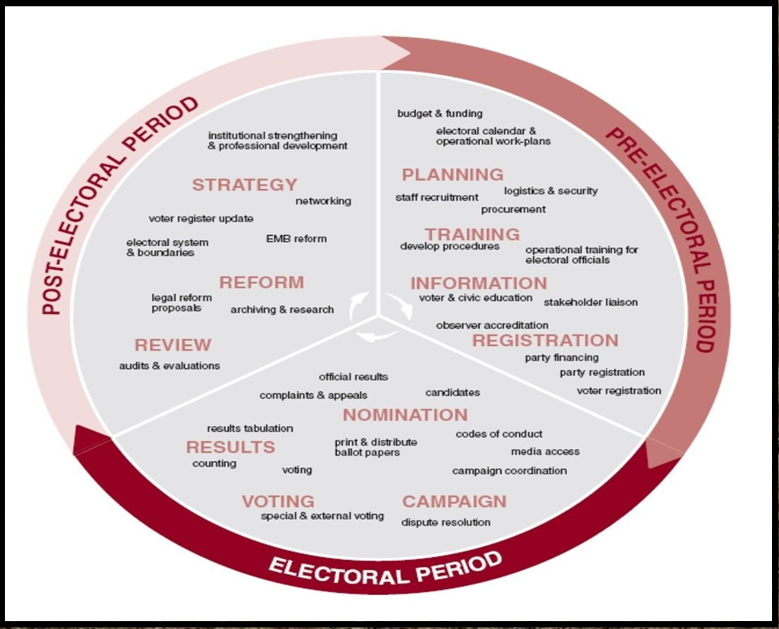PLUCK LOW-HANGING FRUITS FIRST
Syllabus:
- GS 2 : Government Policies and Interventions for Development in various sectors and Issues arising out of their Design and Implementation.
Focus:
- Historically, citizens have harbored contempt towards politicians, often perceiving them as self-serving and detached.
- The lack of accountability and ethical conduct in politics has fueled this sentiment over the years.
The Historical Disdain Towards Politicians
- Historical Precedents: Throughout history, politicians have often been viewed with skepticism and distrust by the public.
- Perceived Disconnect: Citizens have frequently felt disconnected from their elected representatives, perceiving them as out of touch with the needs of the populace.
- Ethical Concerns: Lack of transparency, accountability, and
Source: Brainly
ethical conduct among politicians have contributed to the prevailing disdain towards the political class.
- Public Perception: The negative portrayal of politicians in the media further exacerbates the public’s negative perception of political leaders.
- Impact on Democracy: Widespread contempt towards politicians undermines the functioning of democracy, eroding public trust in governance institutions.
A Glimmer of Hope: Recent Reforms
- Leadership Initiatives: Under the leadership of Prime Minister Narendra Modi, initiatives aimed at governance and development have garnered public support.
- Restoration of Respect: Positive changes in governance and administrative efficiency have contributed to restoring respect for political leadership.
- Public Perception Shift: Citizens increasingly perceive politicians as capable leaders committed to addressing the nation’s challenges.
- Accountability Measures: Implementation of accountability measures, such as performance-based evaluation of elected representatives, has improved governance standards.
- Citizen Engagement: Greater citizen participation in governance processes and policy-making has fostered a sense of inclusivity and empowerment.
Challenges in Electoral Campaigns
- Negative Campaigning: Electoral campaigns often resort to negative tactics, including mudslinging, character assassination, and sensationalism.
- Lack of Substance: Policy discussions and substantive debates take a back seat to sensationalist headlines and personal attacks.
- Voter Manipulation: Voters are susceptible to manipulation through misinformation, propaganda, and divisive rhetoric.
- Influence of Money: The influence of money power in elections undermines the democratic principle of equal representation and access to power.
- Polarization: Political polarization and identity politics further exacerbate divisions within society, hindering constructive dialogue and compromise.
Need for Reforms
- Preserving Democratic Values: Electoral campaigns serve as a cornerstone of democracy, providing a platform for political accountability and public discourse.
- Empowering Voters: Reforming campaign practices is essential to empower voters with the knowledge and tools necessary to make informed decisions.
- Restoring Trust: Reforms aimed at transparency, accountability, and ethical conduct can help restore public trust in the political process.
- Promoting Fairness: Fair and ethical campaign practices ensure a level playing field for all candidates and parties, regardless of resources or influence.
- Strengthening Democracy: Strengthening electoral processes and campaign norms is crucial for the long-term health and stability of democratic institutions.
Promoting Voter Education: Empowering Informed Choices
- Comprehensive Information: Voters should have access to comprehensive information about candidates’ backgrounds, qualifications, and policy positions.
- Asset Disclosure: Mandating the disclosure of candidates’ assets and financial interests helps voters evaluate potential conflicts of interest and integrity.
- Constituency Manifestos: Candidates should prepare and publicize constituency-specific manifestos outlining their priorities and proposed initiatives for development.
- Civic Education Programs: Civic education programs aimed at schools and communities promote civic engagement, political literacy, and democratic values.
- Media Literacy: Voter education initiatives should include media literacy programs to help citizens critically evaluate and discern information from various sources.
Facilitating Opinion-Making: Curbing Misinformation
- Media Monitoring: Vigilant monitoring of media channels and social media platforms helps curb the spread of misinformation and propaganda.
- Fact-Checking Mechanisms: Establishment of independent fact-checking agencies and initiatives helps verify the accuracy of political claims and statements.
- Transparency in Funding: Disclosure of campaign funding sources and expenditures promotes transparency and accountability in electoral financing.
- Ethical Journalism Standards: Enforcement of ethical journalism standards and media regulations ensures balanced and unbiased coverage of electoral campaigns.
- Public Awareness Campaigns: Public awareness campaigns raise awareness about the dangers of misinformation and provide citizens with tools to identify and combat it.
Way Forward:
- Annual Reporting: Elected representatives should be mandated to file annual reports detailing their legislative activities, constituency engagement, and utilization of public funds.
- Public Disclosure: The disclosure of manifesto promises and subsequent action reports ensures transparency and accountability for political commitments.
- Performance Evaluation:
Implementation of performance-based evaluations for elected representatives helps voters assess their effectiveness and responsiveness.
- Judicious Fund Utilization: Details of the judicious use of public funds, including the Local Area Development Fund, should be included in annual reports to ensure accountability.
- Compliance Measures: Stringent penalties for non-compliance with transparency measures and ethical standards serve as a deterrent against malpractice and corruption.
Conclusion:
In conclusion, reforming electoral campaigns is essential to uphold the integrity of democracy and empower citizens with informed decision-making. By strengthening accountability, promoting voter education, and curbing misinformation, India can ensure fair and transparent electoral processes. By plucking the low-hanging fruits of electoral reform, India can pave the way for a more inclusive, participatory, and robust democratic process.
Source:
Mains Practice Question:
Discuss the historical disdain towards politicians and the need for reforms in electoral campaigns to strengthen democracy. Illustrate the challenges faced in electoral campaigns and propose measures to promote transparency, accountability, and voter education.




